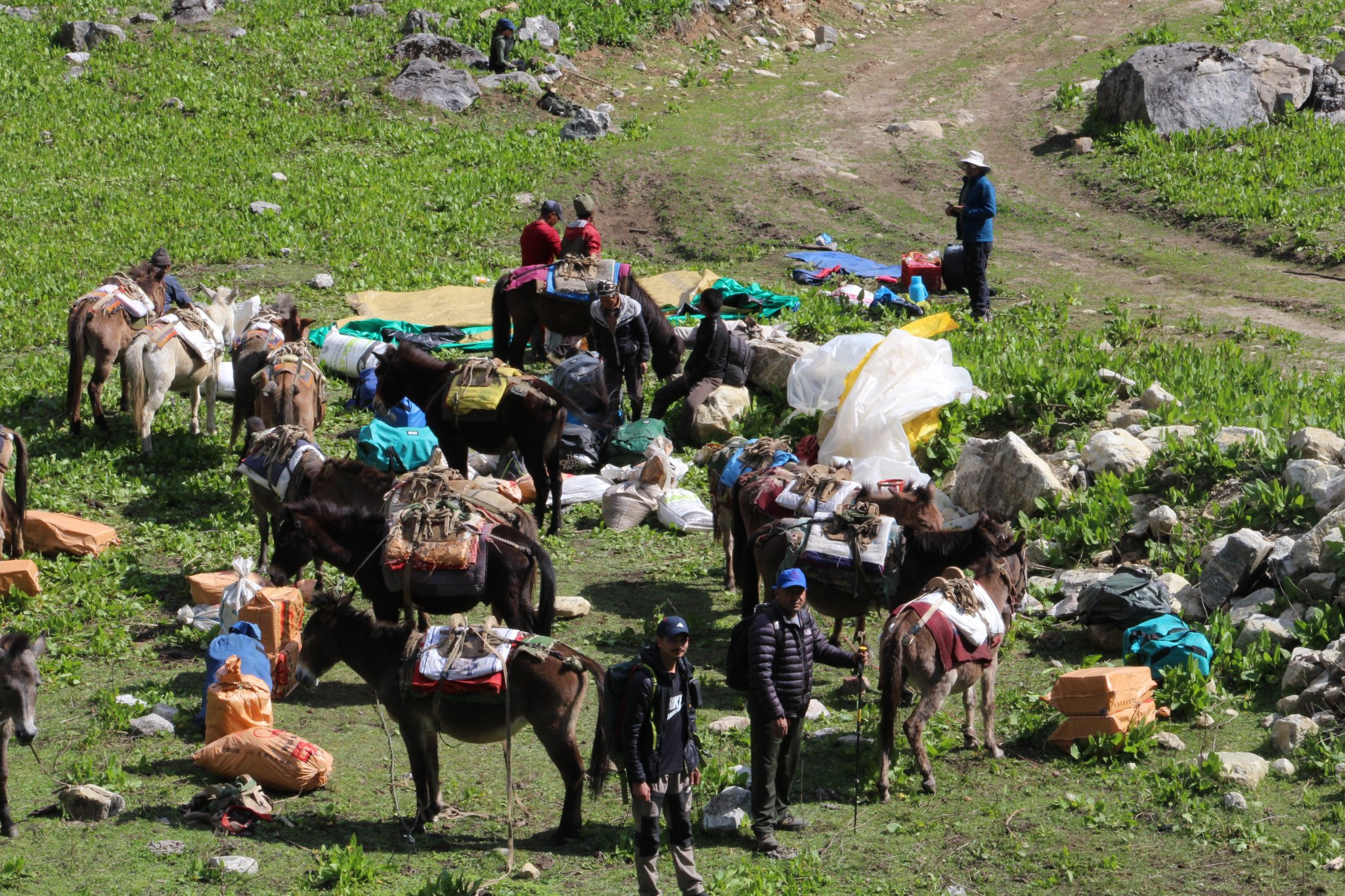The Global Microbiome Conservancy- - Uncovering the mysteries of important bugs that help us live a healthy life
Published in Healthcare & Nursing

Dibyak Kapali, Smriti Khadka, Looniva Shrestha, Naviya Kafle, Dibesh Karmacharya
A healthy adult human gut typically harbors between 300-500 species of bacteria. Human digestive-tract associated microbes are referred to as the gut microbiome. Microbial colonization of the human gut begins at birth. The microbiota of the gut is quite diverse compared to other body sites, however, Bacteroidetes and Firmicutes are two predominate bacterial phyla present. A healthy individual can have as many as 100 trillion (1014) microbial cells, which is approximately 90% of the total cells in a human body. These bacterial cells are unevenly distributed along the length of the Gastro- intestinal tract. There is less than 100 bacteria per gram in stomach and duodenum, over 100 in the small intestine, and more than 1000 in the large intestine. Although the general perception towards these microorganisms might be negative, as most people associate microorganisms to pathogens and diseases- these microbes have tremendous influence over our overall physiology and health as they contribute heavily on various metabolic processes and immune functionalities.
Gut microbiota play an important role in our digestive system; one of their important functions is to extract nutrients from food substrates that are otherwise indigestible by our body. Our ability to derive energy from dietary fibers depends on saccharification and fermentation of complex carbs by the microbial community residing in our distal gut. Microbes liberate short chain fatty acids (SCFA) from indigestible dietary fibers, and SCFA are an important energy source for intestinal mucosa. Gut microbiome are also associated with modulating immune responses, inhibiting tumorigenesis and production of vitamins and essential amino acids inside our body.

Limi Valley, Upper Humla (Nepal): One of the study sites for the Global Microbiome Conservancy project
Continuous exposure to various stress factors (such as heavy metals, pesticides, antibiotics, organic pollutants and mycotoxins) associated with our modern lifestyles often modify our gut microbiome composition causing Dysbiosis- an imbalance in the gut microbiota associated with disease. Imbalance of the normal gut microbiota have been linked with gastrointestinal conditions such as inflammatory bowel disease (IBD) and irritable bowel syndrome (IBS), and other wider chronic conditions such as obesity and Type 2 diabetes.
There is a growing realization of the importance of gut microbiome for our general wellness. We are witnessing emergence of novel therapies derived from microbiome research. By balancing our gut microbiome, some novel therapies like fecal microbiota transplantation, use of probiotics and prebiotics are effectively ameliorating many important disease conditions. A better understanding of the functional interactions between human host and the microbiome is very likely to lead to new diagnostic, prognostic and therapeutic possibilities.
Several microbiome projects such as the Human Microbiome Project (HMP) and the MetaHIT (Metagenomics of the Human Intestinal Tract) are contributing towards deeper understanding of human microbiome. Studies on the function of the microbiota will be critical to understanding the role of the microbiota in human homeostasis and disease pathogenesis.
Conserving microbiota, and archiving the essential gut-microbiome for the future
Despite many advances, current understanding of the human microbiome is largely limited to majority ethnic groups in the industrialized nations, and does not reflect the full diversity of human commensal microbiota. In addition to the scientific ramifications of minority underrepresentation, there are significant translational and ethical implications as well: First, failing to capture the full diversity of healthy human microbiota may limit our ability to understand many microbiome-associated diseases. Second, underrepresented groups are less likely to benefit from microbiome-based medical advances tailored to well-studied populations, propagating healthcare inequities.

Limi Valley, Upper Humla (Nepal): Field Team Getting Ready to Collect Samples for Gut Microbiome Study
By surveying broadly diverse populations throughout the world, including Nepal, we can comprehensively examine the impact of external influences on the overall composition of the bacterial community within each person – and look into some important factors such as diet, genetics, lifestyle, physiology, and environment (geography). Overall, the microbiome study we are conducting will enable a thorough examination of the variability of a “healthy” microbiome as a result of changing external influences by comparing samples collected from different sub-populations i.e. isolated vs. industrialized communities, groups that eat different diets, or geographically separate communities. Finally, the window of opportunity to characterize human microbiome diversity is closing rapidly. Human gut microbial diversity is diminishing around the globe, due to the spread of urbanized diets and lifestyles, which are associated with reduced microbiome biodiversity. As a result, human commensal microbes that have co-evolved with us for millions of years may soon go extinct. Preserving the full diversity of human commensal gut microbiota before it is lost thus represents an urgent imperative- and that is the main objective of the Global Microbiome Conservancy (GMbC). In Nepal, the project is implemented by Dr. Dibesh Karmacharya at the Center for Molecular Dynamics Nepal (CMDN) in collaboration with the GMbC consortium, led by Dr. Mathilde Poyet and Dr. Mathieu Groussin (the cofounders of GMbC). We have been collecting biological samples from both urban and rural communities. Using latest in microbiology and Genomics, we have been profiling gut microbiome and, thereby, contributing to a greater global understanding of human gut microbiota- ultimately helping conserve this important micro-biodiversity.





Please sign in or register for FREE
If you are a registered user on Research Communities by Springer Nature, please sign in